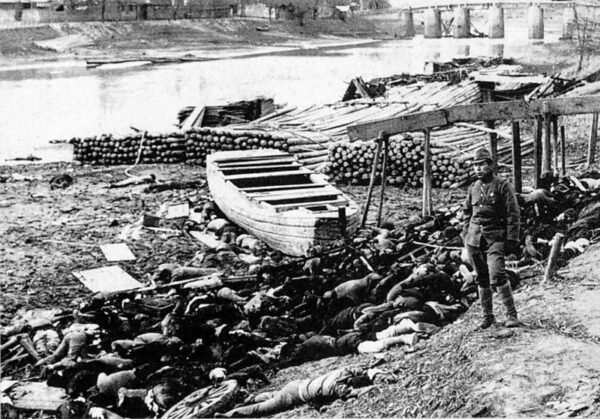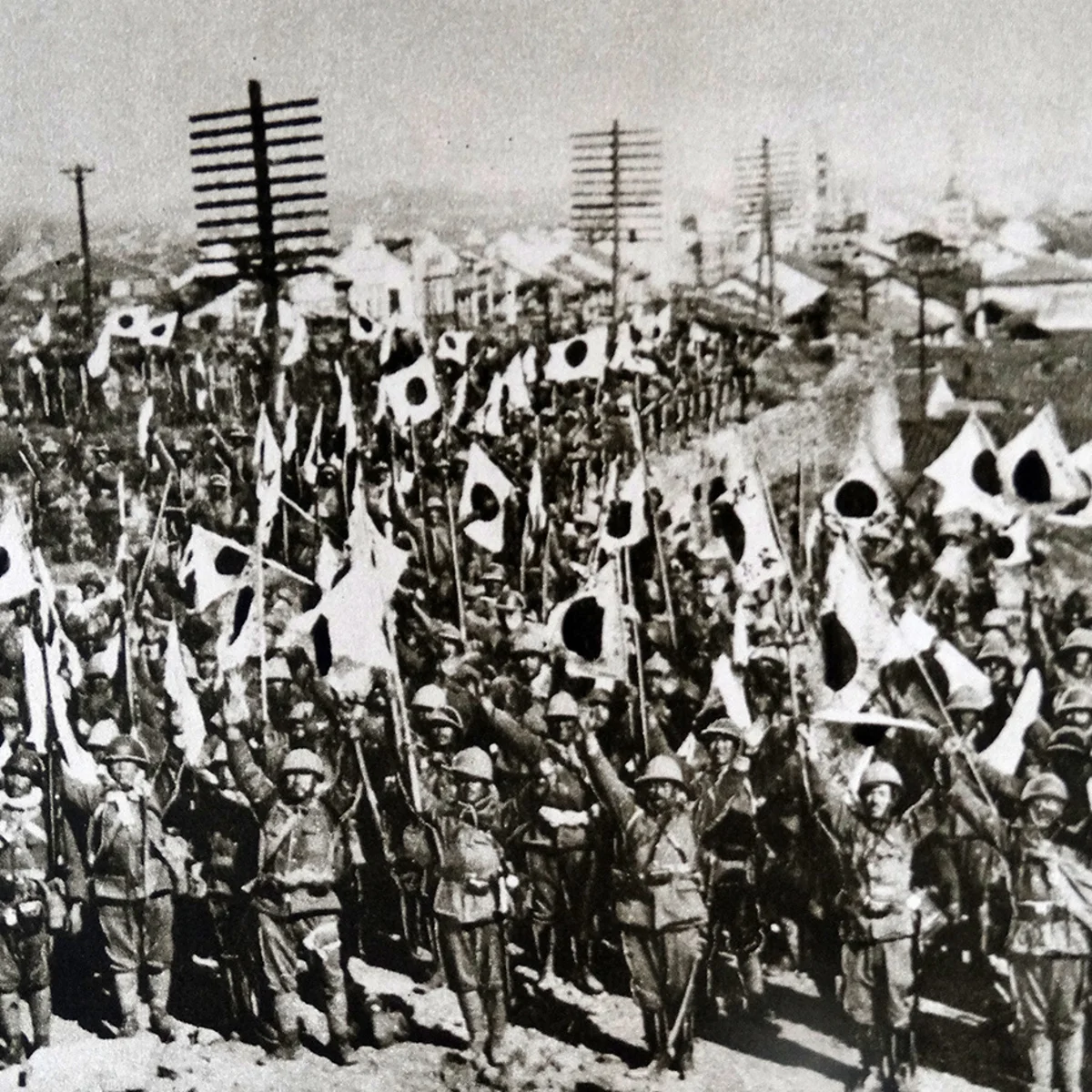The Nanjing Massacre, also known as the Rape of Nanking, was one of the worst crimes of World War II. Discover the full horror, the survivors’ voices, and the heroes who risked everything.

🏯 Nanjing Massacre (1937) – “The Rape of Nanking”
In the cold winter of December 1937, something horrifying unfolded in China’s then capital — Nanjing. The Japanese Imperial Army, marching in from a fierce campaign in Shanghai, invaded the city and brought with it one of the darkest chapters of World War II.
The event is remembered today as the Nanjing Massacre or The Rape of Nanking — a name that still haunts millions across the world.
⚔️ The City That Had No Chance
The city of Nanjing (Nanking) was mostly defenseless. The Chinese Nationalist Army had either retreated or surrendered.
What was left behind were mostly civilians — families, children, teachers, elderly citizens — hoping the war would pass them by.
But it didn’t.
When the Japanese forces entered the city on December 13, 1937, what followed was not a military occupation. It was mass murder, mass rape, and complete destruction.
Much like the horror that gripped My Lai, Vietnam in 1968, the civilians of Nanjing had no means to protect themselves.
💔 6 Weeks of Sheer Horror
For over six weeks, the Japanese army unleashed terror:
- More than 300,000 people were killed, according to Chinese estimates.
- Over 20,000 women were raped, many in front of their families.
- Pregnant women were mutilated.
- Babies were thrown in the air and caught on bayonets.
- People were burned alive, beheaded, or drowned in mass graves.
Entire neighborhoods became graveyards of silence and blood.
International journalists and missionaries described the streets of Nanjing as a “slaughterhouse with no roof.”
Even today, the scale of violence is hard to imagine. Some historians place the number of atrocities even higher, making it one of the worst war crimes in modern history, much like The Columbine High School Massacre shook America decades later.
🧍♀️ Survivor Stories: Screams That Echo Forever
Those who lived through the massacre still carry its scars.
One woman recalled,
“They took my husband. Then they came for me. I begged them to kill me instead of doing what they did… but they laughed.”
A child, then only 9, wrote years later,
“I saw my mother’s body in a ditch. Her face was still.”
These are not just statistics. These were people with dreams, voices, and families.
🕊️ The Heroes Who Refused to Run
While most foreigners fled, a few stayed behind to help. One of them was John Rabe, a German businessman — and surprisingly, a member of the Nazi Party.
He helped create the Nanking Safety Zone, a refugee camp that protected over 200,000 Chinese civilians.
Despite his political background, Rabe used his influence to confront Japanese officers, risking his own life. Alongside American doctors, missionaries, and European aid workers, he gave Nanjing a glimmer of humanity in its darkest hour.
You can read more about these acts of courage on platforms like America112, which document untold global stories.
🩸 Why “The Rape of Nanking”?
The term “rape” was not used lightly. It reflected the sexual violence, but also the emotional violation of an entire culture.
The city was spiritually and physically torn apart. Libraries were burned. Schools were looted. Monuments were bombed.
Even after the soldiers left, the soul of the city never truly healed.
⚖️ Justice Delayed, Denied, or Dismissed?
After the war, a few Japanese commanders were tried in the Tokyo War Crimes Tribunal. Some were executed.
But many were never punished.
Worse, Japan for decades denied or downplayed the massacre. Some textbooks removed the event altogether, causing friction between Japan and China that continues even today.
Victims and historians alike continue to fight for truth and recognition, just as many did in the aftermath of the My Lai Massacre.
🌏 Why the World Must Never Forget
History, if ignored, repeats itself. The Nanjing Massacre is not just a Chinese tragedy — it’s a global lesson.
It teaches us:
- What unchecked power can do.
- How propaganda can blind a nation.
- That silence from the world can be deadly.
Much like the recent coverage on Gaza Aid Boat Blockades, these stories remind us of the fragility of human rights — even today.
🕯️ Final Thoughts
The Nanjing Massacre wasn’t just a moment in history. It was a warning, written in blood.
It reminds us that in times of war, the greatest victims are often the innocent — the mothers, children, and elderly who never wanted to fight.
Let us honor their memories. Let us speak their names. And let us never stop telling their stories.
Because history forgotten is humanity lost.

